Equality, diversity and inclusion are built into the foundation of nursing. In fact, these values underpin nurses’ professional standards of practice and behaviour. For example, the Nursing & Midwifery Council’s Code explicitly states that nurses, midwives and nursing associates in the UK must:
- trust people as individuals and uphold their dignity, avoid making assumptions, and recognise diversity and individual choice.
- act with honesty and integrity at all times, treating people fairly and without discrimination, bullying or harassment.
- not express personal beliefs (including political, religious, or moral beliefs) to people in an inappropriate way.
Additionally, a recent NHS report – called “Workforce Race Equality Standard: An overview of workforce data for nurses, midwives and health visitors in the NHS” – reported that one in five nurses, midwives, and health visitors in NHS trusts and clinical commissioning groups (CCGs) is from a Black and Minority Ethnic (BME) background.
The report also stated that:
- People from a BME background are significantly more likely to be nurses, midwives, and health visitors compared to their representation in the population.
- Since 2016, the number and proportion of BME nurses, midwives, and health visitors in NHS trusts and CCGs increased, while the headcount of white people in these roles decreased.
- Improving race equality across the NHS workforce is cited as a priority in the NHS Long Term Plan, and is a key element of the national Workforce Race Equality Standard programme strategy.
Despite this, though, BME nurses, midwives, and health visitors are underrepresented in senior pay bands. The number is increasing, but not at a pace that will ensure equality in representation. And the Workforce Race Equality Standard is clear: “The impact of persistent discrimination on the physical health and mental well-being of our nursing, midwifery and health visitor colleagues cannot be underestimated, nor the impact on patient care and organisational effciency.” So it’s crucial that steps are taken immediately to promote more inclusive workplaces for nurses in the UK and create real change.
How to promote diversity and inclusion in the workplace
It’s clear that creating a more inclusive environment within the nursing profession is a priority for the NHS as well as bodies such as Nursing & Midwifery Council and the Royal College of Nursing.
For example, in 2021, the Nursing & Midwifery Council launched the second phase of its Ambitious for Change research, which aims to create long-lasting change to tackle discrimination and inequality within nursing and midwifery. And in 2022, the Royal College of Nurses (RCN) will be launching its new equality, diversity and inclusion strategy.
But in the meantime, there are many ways to ensure an inclusive workplace for all nurses.
Use available resources and guidance
There is a lot of guidance – created by employee resource groups, human resources groups, and relevant organisations – that is already available. These resources can be used to ensure everyone is on the same page when it comes to important topics like an organisation’s diversity policy.
For example, all nurses should be familiar with the RCN’s guidance on discrimination. This guidance offers advice on how to deal with discrimination in the workplace, outlines nurses’ rights as employees, and also outlines the steps a nurse can take if they feel they are being treated unfairly, particularly if it’s because of a protected characteristic. Under the Equality Act 2010, people are protected from discrimination on the basis of:
- age
- disability
- gender reassignment
- marriage and civil partnership
- pregnancy and maternity
- race
- religion or belief
- sex
- sexual orientation.
And in addition to a number of digital resources available from the NHS and other related organisations, there are also more informal resources, such as LinkedIn discussion threads and dedicated diversity podcasts.
Training
When it comes to overseeing the recruitment process, as well as promotion processes, it’s crucial that panels understand bias – both conscious and unconscious bias. By better understanding how biases can influence job descriptions, person specifications, interviews, assessments, the selection process, and performance reviews, senior leaders and other people with decision-making powers are more likely to shortlist, interview, appoint, and promote a more diverse pool of people.
Unconscious bias training, and other forms of diversity training, can be delivered in a variety of forms, such as via webinar or in-person group training sessions.
Employee engagement
It can also be useful to go directly to staff for ideas. For example, they could give their thoughts on the following questions:
- What are some of the ways nursing can be more inclusive?
- What are your thoughts about diversity within the NHS?
- What does inclusion mean to you?
- What are you or your team doing to create an inclusive environment?
- What does it mean to support diversity in nursing?
- How do you encourage diversity and inclusion in workplaces?
- How can we tackle racial inequality within nursing?
- What are your thoughts on gender diversity, gender equality, and the gender pay gap?
Mentoring
Mentoring people from different backgrounds can be a really useful way to foster diverse talent, create a more inclusive culture, and greatly improve a person’s employee experience.
Create and join diversity initiatives
Getting involved in organised initiatives and events, such as Black History Month or LGBT History Month, is an effective way to learn more about inclusion efforts and human rights, while also demonstrating commitment to a work environment – or company culture – that values inclusivity.
The benefits of diversity in nursing
The benefits of a diverse workforce within nursing can be significant. Research shows that organisations perform better when they are more diverse.
By ensuring equal opportunities for all nurses and midwives – regardless of ethnicity, orientation, gender, and so on – recruitment and retention figures can be increased, and working environments can be made even more supportive for both staff and the patients they care for.
Help create a more inclusive workforce in nursing
Creating more inclusive environments is just one of the challenges in healthcare right now. Medical professionals are coping with everything from coronavirus to staffing levels, and that’s why they need senior nurses to help lead the way through.
You can equip yourself for transformational leadership in senior nursing roles with the MSc Nursing Studies at the University of Sunderland. This flexible master’s degree is studied 100% online, and it has been designed to help nurses in the UK and around the world to succeed in senior nursing, midwifery and healthcare roles, advance to higher pay bands, and develop greater understanding within their current roles and scope of practice.






